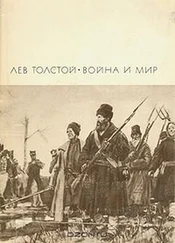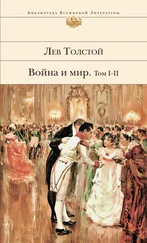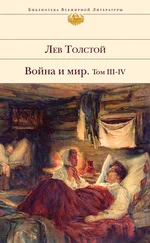| "Attack indeed!" said the colonel in a bored voice, puckering up his face as if driving off a troublesome fly. "And why are you stopping here? |
- Какие тут атаки, - сказал начальник скучливым голосом, морщась, как от докучливой мухи. - И зачем вы тут стоите? |
| Don't you see the skirmishers are retreating? |
Видите, фланкеры отступают. |
| Lead the squadron back." |
Ведите назад эскадрон. |
| The squadron crossed the bridge and drew out of range of fire without having lost a single man. |
Эскадрон перешел мост и вышел из-под выстрелов, не потеряв ни одного человека. |
| The second squadron that had been in the front line followed them across and the last Cossacks quitted the farther side of the river. |
Вслед за ним перешел и второй эскадрон, бывший в цепи, и последние казаки очистили ту сторону. |
| The two Pavlograd squadrons, having crossed the bridge, retired up the hill one after the other. |
Два эскадрона павлоградцев, перейдя мост, один за другим, пошли назад на гору. |
| Their colonel, Karl Bogdanich Schubert, came up to Denisov's squadron and rode at a footpace not far from Rostov, without taking any notice of him although they were now meeting for the first time since their encounter concerning Telyanin. |
Полковой командир Карл Богданович Шуберт подъехал к эскадрону Денисова и ехал шагом недалеко от Ростова, не обращая на него никакого внимания, несмотря на то, что после бывшего столкновения за Телянина, они виделись теперь в первый раз. |
| Rostov, feeling that he was at the front and in the power of a man toward whom he now admitted that he had been to blame, did not lift his eyes from the colonel's athletic back, his nape covered with light hair, and his red neck. |
Ростов, чувствуя себя во фронте во власти человека, перед которым он теперь считал себя виноватым, не спускал глаз с атлетической спины, белокурого затылка и красной шеи полкового командира. |
| It seemed to Rostov that Bogdanich was only pretending not to notice him, and that his whole aim now was to test the cadet's courage, so he drew himself up and looked around him merrily; then it seemed to him that Bogdanich rode so near in order to show him his courage. |
Ростову то казалось, что Богданыч только притворяется невнимательным, и что вся цель его теперь состоит в том, чтоб испытать храбрость юнкера, и он выпрямлялся и весело оглядывался; то ему казалось, что Богданыч нарочно едет близко, чтобы показать Ростову свою храбрость. |
| Next he thought that his enemy would send the squadron on a desperate attack just to punish him-Rostov. |
То ему думалось, что враг его теперь нарочно пошлет эскадрон в отчаянную атаку, чтобы наказать его, Ростова. |
| Then he imagined how, after the attack, Bogdanich would come up to him as he lay wounded and would magnanimously extend the hand of reconciliation. |
То думалось, что после атаки он подойдет к нему и великодушно протянет ему, раненому, руку примирения. |
| The high-shouldered figure of Zherkov, familiar to the Pavlograds as he had but recently left their regiment, rode up to the colonel. |
Знакомая павлоградцам, с высокоподнятыми плечами, фигура Жеркова (он недавно выбыл из их полка) подъехала к полковому командиру. |
| After his dismissal from headquarters Zherkov had not remained in the regiment, saying he was not such a fool as to slave at the front when he could get more rewards by doing nothing on the staff, and had succeeded in attaching himself as an orderly officer to Prince Bagration. |
Жерков, после своего изгнания из главного штаба, не остался в полку, говоря, что он не дурак во фронте лямку тянуть, когда он при штабе, ничего не делая, получит наград больше, и умел пристроиться ординарцем к князю Багратиону. |
| He now came to his former chief with an order from the commander of the rear guard. |
Он приехал к своему бывшему начальнику с приказанием от начальника ариергарда. |
| "Colonel," he said, addressing Rostov's enemy with an air of gloomy gravity and glancing round at his comrades, "there is an order to stop and fire the bridge." |
- Полковник, - сказал он с своею мрачною серьезностью, обращаясь ко врагу Ростова и оглядывая товарищей, - велено остановиться, мост зажечь. |
| "An order to who?" asked the colonel morosely. |
- Кто велено? - угрюмо спросил полковник. |
| "I don't myself know 'to who,'" replied the cornet in a serious tone, "but the prince told me to 'go and tell the colonel that the hussars must return quickly and fire the bridge.'" |
- Уж я и не знаю, полковник, кто велено , -серьезно отвечал корнет, - но только мне князь приказал: "Поезжай и скажи полковнику, чтобы гусары вернулись скорей и зажгли бы мост". |
| Zherkov was followed by an officer of the suite who rode up to the colonel of hussars with the same order. |
Вслед за Жерковым к гусарскому полковнику подъехал свитский офицер с тем же приказанием. |
| After him the stout Nesvitski came galloping up on a Cossack horse that could scarcely carry his weight. |
Вслед за свитским офицером на казачьей лошади, которая насилу несла его галопом, подъехал толстый Несвицкий. |
| "How's this, Colonel?" he shouted as he approached. "I told you to fire the bridge, and now someone has gone and blundered; they are all beside themselves over there and one can't make anything out." |
- Как же, полковник, - кричал он еще на езде, - я вам говорил мост зажечь, а теперь кто-то переврал; там все с ума сходят, ничего не разберешь. |
| The colonel deliberately stopped the regiment and turned to Nesvitski. |
Полковник неторопливо остановил полк и обратился к Несвицкому: |
| "You spoke to me of inflammable material," said he, "but you said nothing about firing it." |
- Вы мне говорили про горючие вещества, - сказал он, - а про то, чтобы зажигать, вы мне ничего не говорили. |
| "But, my dear sir," said Nesvitski as he drew up, taking off his cap and smoothing his hair wet with perspiration with his plump hand, "wasn't I telling you to fire the bridge, when inflammable material had been put in position?" |
- Да как же, батюшка, - заговорил, остановившись, Несвицкий, снимая фуражку и расправляя пухлой рукой мокрые от пота волосы, - как же не говорил, что мост зажечь, когда горючие вещества положили? |
| "I am not your 'dear sir,' Mr. Staff Officer, and you did not tell me to burn the bridge! |
-Я вам не "батюшка", господин штаб-офицер, а вы мне не говорили, чтоб мост зажигайт! |
| I know the service, and it is my habit orders strictly to obey. |
Я служба знаю, и мне в привычка приказание строго исполняйт. |
| You said the bridge would be burned, but who would it burn, I could not know by the holy spirit!" |
Вы сказали, мост зажгут, а кто зажгут, я святым духом не могу знайт... |
| "Ah, that's always the way!" said Nesvitski with a wave of the hand. "How did you get here?" said he, turning to Zherkov. |
- Ну, вот всегда так, - махнув рукой, сказал Несвицкий. - Ты как здесь? - обратился он к Жеркову. |
| "On the same business. |
- Да за тем же. |
| But you are damp! Let me wring you out!" |
Однако ты отсырел, дай я тебя выжму. |
| "You were saying, Mr. Staff Officer..." continued the colonel in an offended tone. |
- Вы сказали, господин штаб-офицер, - продолжал полковник обиженным тоном... |
| "Colonel," interrupted the officer of the suite, "You must be quick or the enemy will bring up his guns to use grapeshot." |
- Полковник, - перебил свитский офицер, - надо торопиться, а то неприятель пододвинет орудия на картечный выстрел. |



